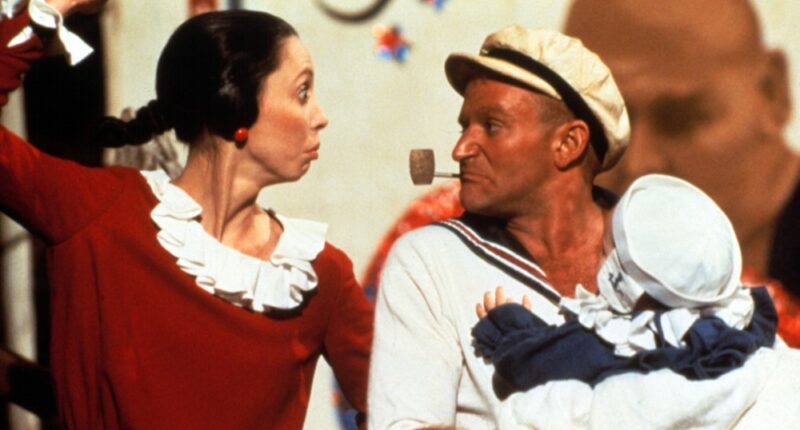Barry Diller‘s book tour for his recently published memoir “Who Knew” hit New York City’s 92Y, where moderator Anderson Cooper asked Diller during a Q&A to reveal “the most coked-up film set” he ever visited during his tenure as the CEO of Paramount Pictures. The former studio executive had the answer almost immediately: Robert Altman’s “Popeye” (1980).
“Coked-up film set? Oh, ‘Popeye,’” Diller answered (via Entertainment Weekly). “By the way, you can watch it. If you watch ‘Popeye,’ you’re watching a movie that — you think of it in the thing that they used to do about record speeds, 33 [RPM], whatever. This is a movie that runs at 78 RPM and 33 speed.”
Diller served as the head of Paramount Pictures from 1974 until 1984. His illustrious tenure at the studio included the releases of hit movies such as “Saturday Night Fever,” “Raiders of the Lost Ark,” “Grease” and “Beverly Hills Cop,” among other classics. But it’s Altman’s “Popeye” that earns the distinction of having the most “coked-up film set.”
“You couldn’t escape it,” Diller said about the drug use on the movie’s set. “They were actually shipping in film cans at the time. Film cans would be sent back to L.A. for daily processing film. This was shot in Malta. And we found out that the film cans were actually being used to ship cocaine back and forth to this set. Everyone was stoned.”
Robin Williams starred as the title character in “Popeye,” which marked the comedian’s first big-screen acting role after making a name for himself on hit television series “Happy Days” and its spinoff “Mork & Mindy.” The film co-starred Altman regular Shelley Duvall as Olive Oyl. The movie was a box office success with $60 million worldwide (unadjusted for inflation), nearly double its production budget. Reviews, however, were mixed.
Variety wrote in its original “Popeye” review: “It is more than faint praise to say that ‘Popeye’ is far, far better than it might have been, considering the treacherous challenge it presented. But avoiding disaster is not necessarily the same as success. To the eye, Robin Williams is terrifically transposed into the squinting sailor with the bulging arms. But to the ear, his mutterings are not always comprehensible.”
1












